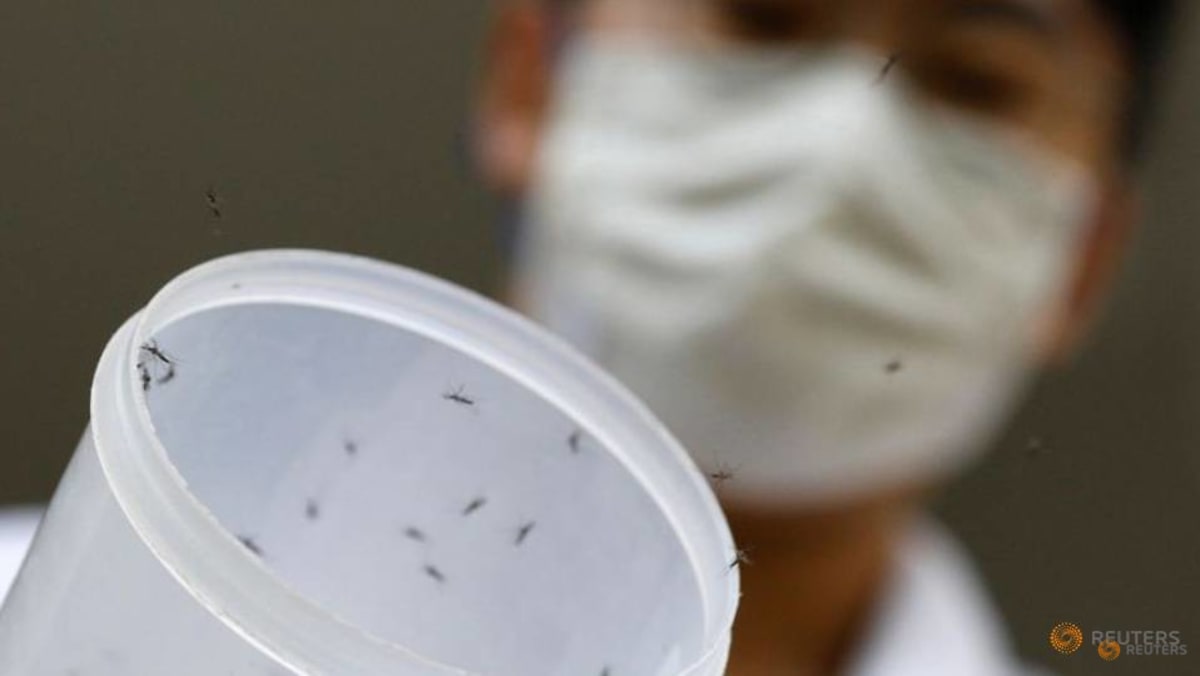
SINGAPORE: Male Wolbachia-carrying Aedes aegypti mosquitoes will be released in five new sites in the south of Singapore in an effort to combat dengue, Senior Parliamentary Secretary for Sustainability and the Environment Baey Yam Keng said on Tuesday (Nov 21).
The five locations are Bukit Merah – Telok Blangah, Clementi – West Coast, Commonwealth, Holland, and Marine Parade – Mountbatten, and will comprise both Housing Board (HDB) and landed estates.
The new sites will increase Wolbachia coverage from 350,000 to 480,000 households, representing an increase from 26 per cent to 35 per cent of all households in Singapore.
Releases in these new sites will start in the first quarter of 2024.
The National Environment Agency (NEA) said that the five sites were selected based on various considerations, including historical dengue risk, Aedes mosquito population, and NEA’s capacity for producing and releasing male Wolbachia-Aedes mosquitoes.
Mr Baey announced the new sites at the International Vector-Borne Diseases Conference at Shaw Foundation Alumni House at the National University of Singapore.
He noted that Singapore has experienced dengue outbreaks in three of the past five years – nearly 16,000 cases were reported in 2019, and more than 30,000 cases each year were recorded in 2020 and 2022.
Under Project Wolbachia, male Aedes aegypti mosquitoes that carry the Wolbachia bacteria are released to mate with the female Aedes aegypti in an urban environment. The resulting eggs do not hatch.
Male mosquitoes do not bite and cannot transmit disease as they feed only on plant juices such as nectar.
According to data from the NEA’s website, more than 8,700 dengue cases have been recorded this year. A total of 143 dengue cases were reported in the week ending Nov 18.
As of Tuesday afternoon, there were 34 dengue clusters.
NEA said on its website that while the weekly number of reported dengue cases has decreased in the past month, case numbers remain high. It added that Singapore is expecting warmer than usual year-end weather due to the current El Nino phenomenon.
Wetter conditions in the coming weeks may also create more favourable conditions for mosquito breeding and dengue transmission, said the agency.
In September, the NEA warned that Singapore was at risk of a surge in dengue cases, with dengue virus serotype 1 (DENV-1) cases on the rise, replacing the previously dominant dengue virus serotype 3 (DENV-3).

